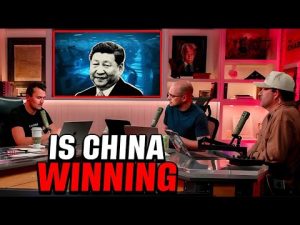In the buzzing corridors of global trade talks, there’s a palpable energy as nations rush to secure favorable deals with the United States. The catalyst behind this frenzy? President Trump’s audacious and, dare one say, ingenious strategy to reassert America’s position in the world economy. It’s akin to a classic game of musical chairs, only this time the stakes are astronomically high, with tariffs and trade balances hanging in the balance. Countries are racing to sit at the table before the music stops, leaving the unfortunate caught standing.
It appears the switchboards in Washington are lighting up with calls from leaders eager to strike a deal. They recognize the Trump administration’s no-nonsense approach, one that promises to slice through what many feel has been a raw deal for America. Rumblings of a new trade paradigm have sent diplomatic circles into a spin, with several European countries eagerly jumping on board. The anticipation isn’t just hot air; it’s expected to lead to a notable reduction in tariffs on American-made products, a move that would potentially revitalize the manufacturing sector and unlock a plethora of jobs back home.
While Europe is busy scrambling for a piece of the pie, eyes turn to the other side of the globe—China, the real heavyweight. The discussions have isolated China, confronting its unfavorable trade practices head-on. For years, China has grown fat on its unfair advantages, operating with what some call “predatory trade practices” that leave American businesses at a disadvantage. But with Trump at the helm, there’s a new sheriff in town. Forget zombie apocalypse; it’s a trade apocalypse if China finds itself unable to tap into the vast $20 trillion American consumer market.
The fear is palpable on the globalists’ side, those who have long thrived on the cheap influx of goods from countries with dubious labor practices. Their arguments that such practices benefit the average American, offering affordable goods, have worn thin. Meanwhile, it’s clear that many working-class Americans have been left behind in this so-called bargain. Trump’s approach strategically flexes American muscle, promising to level the playing field. It’s about time the U.S. stopped being a global doormat.
In the end, the message is clear: the good ol’ U.S.A. isn’t here to get played anymore. The Trump administration’s shrewd maneuvering might just lead to a new era where trade deals actually prioritize American interests. After all, when nations trade fairly, both sides benefit—and for America, that would indeed be a winning position. This game of trade musical chairs may soon see the U.S. claiming the best seat in the house, leaving others to reconsider their strategies and perhaps even their alliances.







